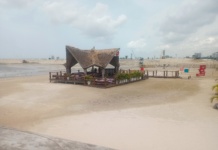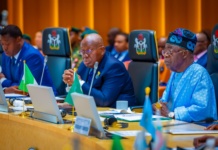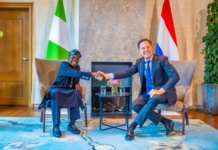By ‘Ronke Adeagbo – The World Bank has predicted that Ghana would be the fastest growing African economy with a forecasted growth of 8.3% and 8.9% in 2019/20. Whilst India is predicted to grow at a pace of 7.3% in 2018/19 and 7.5% in 2019/20. Ghana’s growth is attributable to oil production and cocoa production. It is now seen as the destination for investors.

This is the same country that in 1983, under the regime of late President Shehu Shagari, all illegal Ghanaian immigrants were asked to leave Nigeria in bags. This initiative was popularly known as ‘Ghana must go.’ However, just like magic, on the 20th of February 2019, I read in the Nigerian dailies that Nigerians were being deported from Ghana back to Nigeria for overstaying and being a nuisance. Unbelievable….. I am still pinching myself and shedding a tear for the plight of my mother land. Where did we go wrong? What is happening to Africa’s giant? Why is our beauty turning to ashes right in front of our eyes? Who is responsible for this chaotic project?
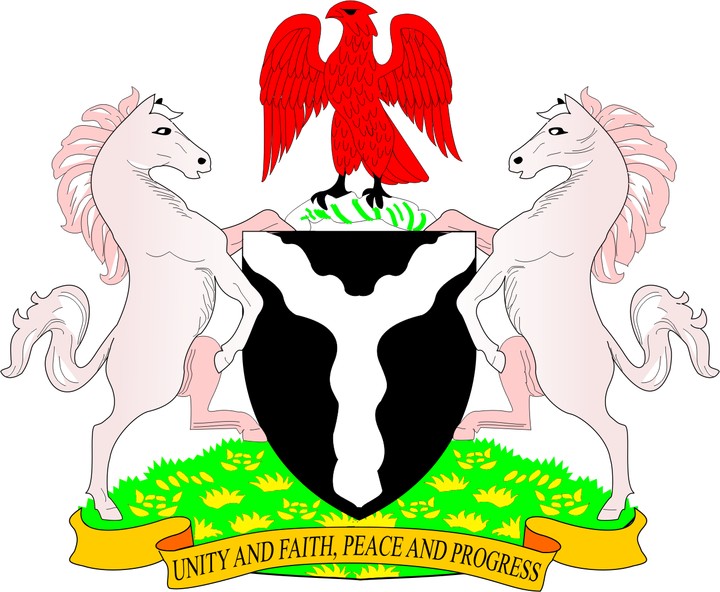
The bible says, “Where there is no vision, the people perish and when the foundation is destroyed, what can the righteous do? In my opinion, it seems something has fundamentally gone wrong with Project Nigeria. It feels like when the British handed over power to Nigerians, it seems like forces of disintegration was also handed over, to disintegrate in pieces and not in peace. It seems like a product of failed engineering, which needs to be reversed. So until the algorithm for solving the Nigerian puzzle are discovered and implemented, the confusion of Project Nigeria could easily continue for the next century and beyond.
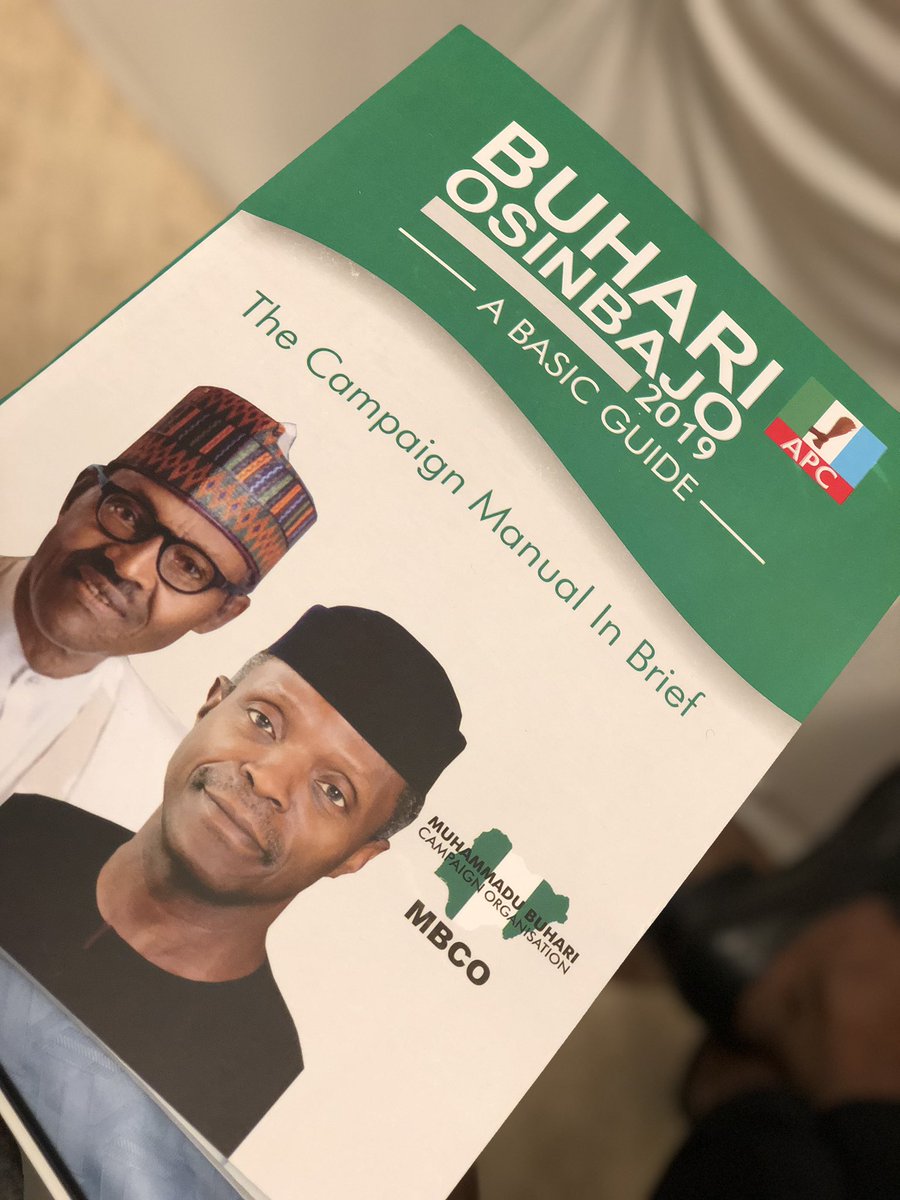
This article is an attempt to provide a counter narrative on why Africa and especially Nigeria seem to be like an unresolvable puzzle. Essentially, it is an attempt to carry out a root and branch review of the issues first and proffer solutions that could enable us have a robust and resilient economy, that would enable us have effective institutions, infrastructure and technology.
In science, a simple pendulum produces a form of success called simple harmonic motions, which can be likened to life being sweet, citizens are happy and everything works. But the Nigerian Project feels like a pendulum deliberately broken by the engineer, to produce a predictable result. A double rod pendulum, which keeps going round and round in predictable circles until the pendulum joints wears out and a melt-down starts, which would require us to keep calling on the scientist to tell us what the right pathway to nationhood is.
A good place to start is to demystify some myths about Nigeria. Firstly, the fact that we produce oil, does not make us an oil-rich country. In 2013, when crude oil prices averaged over $100 per barrel. The revenue per person per annum in Nigeria was $520. In Qatar and Kuwait, it was $31,000 and $27,000 respectively. You do the maths and decide if Nigeria is an oil-rich country. So we need to seek alternative source of revenue to increase our revenue per person per year.
Secondly, our huge population size is not a strength. Population is only a strength, if we have well educated, healthy and gainfully employed citizens and households that have enough income to buy goods and services produced by businesses.
Thirdly, we delude ourselves by using our debt to GDP to measure the level of our indebtedness. Therefore, we believe our gearing is low. This is misleading for a country like Nigeria, because there is an assumption that large national income generates a large amount of tax revenues. This cannot be further from the truth, as we know too well that Nigerians do not like paying tax and the enforcement is not very robust, to serve as a deterrent for tax evasion. Therefore, debt as a percentage of revenue is a more meaningful ratio for us.
According to Fitch, the ratings agency, our local currency debt as a percentage of revenues is 325%, never mind foreign debt. Whilst median for countries in Africa and Middle East is 200%. Interest payable on our loans are 50% of revenues. Whilst Portugal has a debt to national revenues of 130% but uses 11% of revenues to service its debt. This suggest we are over geared, which begs the question, how are we going to get the funds to invest in infrastructure, which we so badly need to attract investors into Nigeria?
Without a doubt, to return our country to the path of growth and prosperity, we need the following sectors working hand in gloves. The government, foreign investors, financial sector, businesses and household.
The finances of the central government are of course managed by the federal government. The central bank regulates the banking sector and usually determines the exchange rate policy. The Federal government and central bank manage trade and investment policies. The first three sectors should help businesses and households to thrive. When all five sectors synchronise, you get a sustainably developed and resilient economy.
There are also three key rates in every economy namely, inflation rate, interest rate and exchange rate. But the greatest of them all is inflation rate, as it drives both interest rates and exchange rates. If a country can control the rate at which its local currency loses purchasing power every year, then that country is on the pathway of prosperity. Margaret Thatcher once said that “Inflation is the unseen robber of those who have saved.”
When investors want to invest, they take expected inflation rate into account when making their decision, because they want their return on investment to be more than expected inflation, otherwise they will lose purchasing power.
The dollar is usually used as the global currency and in Feb 2019, the Nigerian inflation rate was 17.78% whilst the US inflation rate for the same period is 1.6%. This means the naira is depreciating against the dollar. Therefore, any government that says one of their policies is to stabilise the exchange rates. Ask how they plan to stabilise the inflation rate first.
Considering Nigeria is an oil producing country, we need to add a fourth column, which is price of crude oil. This drives our revenues and because we are a mono-product economy, when the price of crude oil moves adversely, our revenues take a nose dive too.
As I mentioned earlier, our huge population size is a cause for concern and means the national cake is been spread very thinly. According to www.populationpyramid.net in 2013, our population size was 172million and it rose to 182million in 2018 and will rise to 196 million in 2023. So that means every year we shall increase our net population by 3million every year. Whilst the UK population was 64 million in 2013, rose to 65million in 2018 and will remain at 65million in 2023. Is there any wonder why they have a better standard of living and many Nigerians are prepared to risk their lives to come to the UK, instead of us fixing our country?
Considering the wealth of a nation is measured by the output of the nation (e.g. number of cassava produced) divided by the number of people going to eat the cassava. Based on the above statistics, it seems we are growing the numbers of people going to eat the cassava faster than cassava we are producing. Also the wealth (cassava) is skewed in favour of the rich. Tall order!
The government of China, Singapore and India were not idle when they introduced population control. This ought to be part of our political agenda with the ‘buy-in’ of religious leaders. We cannot afford to be sentimental about this. We need to back it up with penalties, if any couple goes over the stipulated number of children per family. Our population pyramid suggest we have more children between 0-4 years, then any other age bracket on the pyramid.
Like any responsible government, Nigerians, expect the government to levy and collect taxes from us all and use these tax revenues to meet the social contract they have with the citizens. By providing a social net for its citizens, security of life and property, law and order, improved infrastructure, affordable health care, education, accommodation, jobs and manage the economy well.
Currently, non-oil revenues collection from local, state and federal government accounts for 4% of the national income. Again Ghana is 16% and Kenya is 17%. This suggest we can boost tax revenues simply by instilling strong penalties for non-payment of taxes.
Back of the envelop calculations suggest the government earns cN4 trillion every year. But spends 50% of that servicing debt and the rest on recurrent expenditure, such as salaries and pensions contribution. So there is nothing left for capital expenditure to develop our infrastructure. Hence the decay in our infrastructure, so we fund the building of our infrastructure from debts. Only to part complete the project and abandon it or if we complete it, but we do not have any cyclical maintenance plan in place to maintain it.
So the government pendulum is broken and it has been replaced with a triple rod pendulum, so instead of a simple harmonic motion, it is a determinist chaos. So it needs to be fixed, otherwise the government will not be able to fulfil its purpose – governance. This is absolutely critical.
So in summary, the government has to show the desired leadership and do the needful as follows:
- Diversify the income base of the country
- Reduce government overheads, essentially reduce the cost of governance, reduce the wage bill of civil staff and renegotiate downwards the servicing of our debts
- Address our infrastructural deficit in a cost effective manner, engage in public- private partnership
- Shift some responsibilities to the state, so they are more innovative and increase their Internally Generated Revenue (IGR) rather than come cap in hand to the centre always.
So we all have a joint responsibility to rethink Nigeria, to fix this pendulum, so it has a purposeful motion, we need to turn our determinist chaos to order, we need to re-engineer this programmed chaos, we need to stand tall in the committee of Nations…. So all hands on the pump.
‘Ronke Adeagbo FCA FCCA CPFA is a director of British Safety Council and the Nigerian Ambassador for Health and Safety. She is the founder of IA- Foundation, a foundation set up to remove obstacles preventing anyone from getting good education.
Kindly follow us on twitter:@AfricanVoice2


